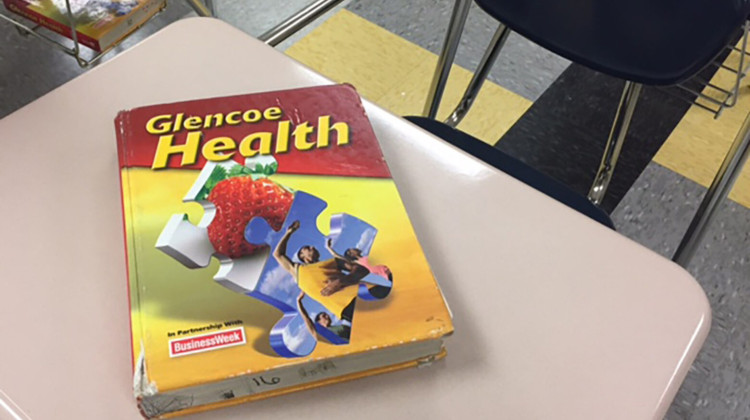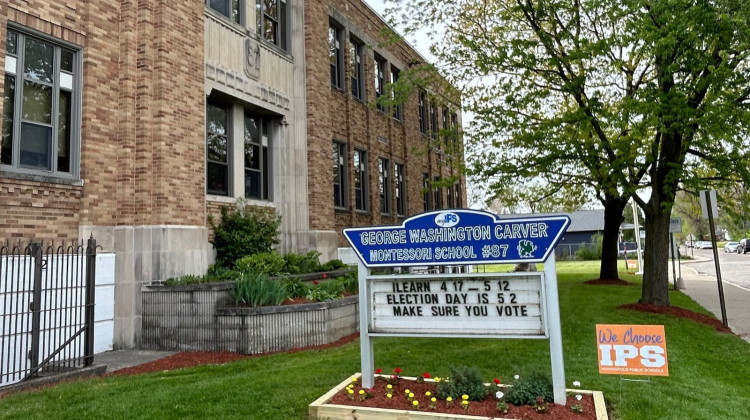
Indiana Attorney General Todd Rokita's office said they support the original version of Section 504 of the Rehabilitation Act of 1973 -- not the additions from the Biden Administration.
UnsplashHave a news tip for WFYI's education team? Share it here.
Indiana is one of several conservative states asking a Texas court to declare unconstitutional a 52-year-old federal law that offers crucial protection for people with disabilities, including students.
Conservative attorneys general in 17 states filed a lawsuit in September that they say aims to reverse a Biden-era regulation from the U.S. Department of Health and Human Services that could extend protection under Section 504 to people with gender dysphoria.
But the lawsuit, led by Texas, takes a much broader aim: It asks the court to rule that Section 504 of the Rehabilitation Act of 1973 exceeds federal authority. That landmark civil rights law — which applies to organizations that receive federal funding such as hospitals and schools — prohibits discrimination based on disability. The states also asked the court to strike down the entire new rule.
An expert on disability education law told WFYI that it’s extremely unlikely that the courts would rule that Section 504 is unconstitutional. And people with disabilities are not at imminent risk of losing protection.
But advocacy groups for people with disabilities are calling for states to withdraw from the lawsuit, which is in limbo because of the new presidential administration.
“The point is, why are these 17 states trying to tear down Section 504, which is a foundational piece of our disability rights federal law?” asked Claudia Center, legal director at the Disability Rights Education & Defense Fund. “It's very insulting and disrespectful to the disability community.”
“Maybe those AGs and lawyers were thinking, ‘okay, let's burn it all down. Let's try and get Section 504 declared unconstitutional,’” Center said. “And that is just not an acceptable approach to the disability community.”
The Disability Rights Education & Defense Fund joined with several national disability rights advocacy organizations last month to release a statement opposing the lawsuit.
The statement attracted attention online and sparked outrage over the lawsuit, including from parents of children with disabilities who are concerned about how the lawsuit could impact students.
A spokesperson for the office of Indiana Attorney General Todd Rokita told WFYI in a statement that he supports Section 504.
"As a father of a special needs child, Attorney General Rokita understands and is in full support of the ADA and Section 504. That is exactly why Indiana joined a multi-state lawsuit to stop the Biden Administration's unlawful attempts to add ‘gender identity disorders’ to the list of disabilities,” the spokesperson wrote in an email. “And now thanks to President Trump, Section 504 will be restored to its original intent."
That echoes statements from other backers of the lawsuit. The Arkansas attorney general called the public outcry “misinformation” and said the lawsuit is about the inclusion of gender dysphoria and it does not seek to eliminate Section 504. The Iowa attorney general claimed that the lawsuit seeks to protect Section 504.
Threat or ‘political theater’?
Perry Zirkel, a retired professor and an expert on special education law, said that the states have a decent chance of winning their claim that gender dysphoria should not be included as a disability. But the odds that the court sides with the states and rules that Section 504 is unconstitutional are “one in a thousand.”
“This is just political theater,” Zirkel said. The states complaint argues that Section 504 is unconstitutional in part because states did not get adequate notice, he said. “It was enacted in 1973. So we're now talking 50 years later, you're arguing that there's a statute that somehow surprised you.”
If Section 504 were eventually invalidated by the U.S. Supreme Court, most public school students with disabilities would be insulated from the effects because they are also protected by the Individuals with Disabilities Education Act.
But about 3 percent of U.S. students, or 1.6 million children, are only protected by Section 504. Those children typically have medical conditions, such as diabetes, that require accommodations but not special education services, Zirkel said.
What could come next
The lawsuit was put on hold after President Trump took office, and what happens next depends in part on his administration, which has taken aim at protections for transgender people.
Because the reference to gender dysphoria is included in the preamble to the new rule, the Trump administration could remove it without going through the usual rulemaking process, according to Center.
That would accomplish the goal Rokita and other states described — ending protection for people with gender dysphoria — without attacking broader protections for people with disabilities.
The Arc of Indiana, a disability advocacy group, does not have a position on whether gender dysphoria should be a protected disability, said chief legal officer Tom Crishon. But the relief that the states seek is “extraordinarily broad.”
“Section 504 has been a bedrock civil rights protection for people with disabilities for decades, ensuring access to education, healthcare, employment, and other essential services,” he said. “Striking it down would be devastating for people with disabilities nationwide.”
The lawsuit is filed in the U.S. District Court for the Northern District of Texas.
Contact WFYI education reporter Dylan Peers McCoy at dmccoy@wfyi.org.
 DONATE
DONATE






 Support WFYI. We can't do it without you.
Support WFYI. We can't do it without you.